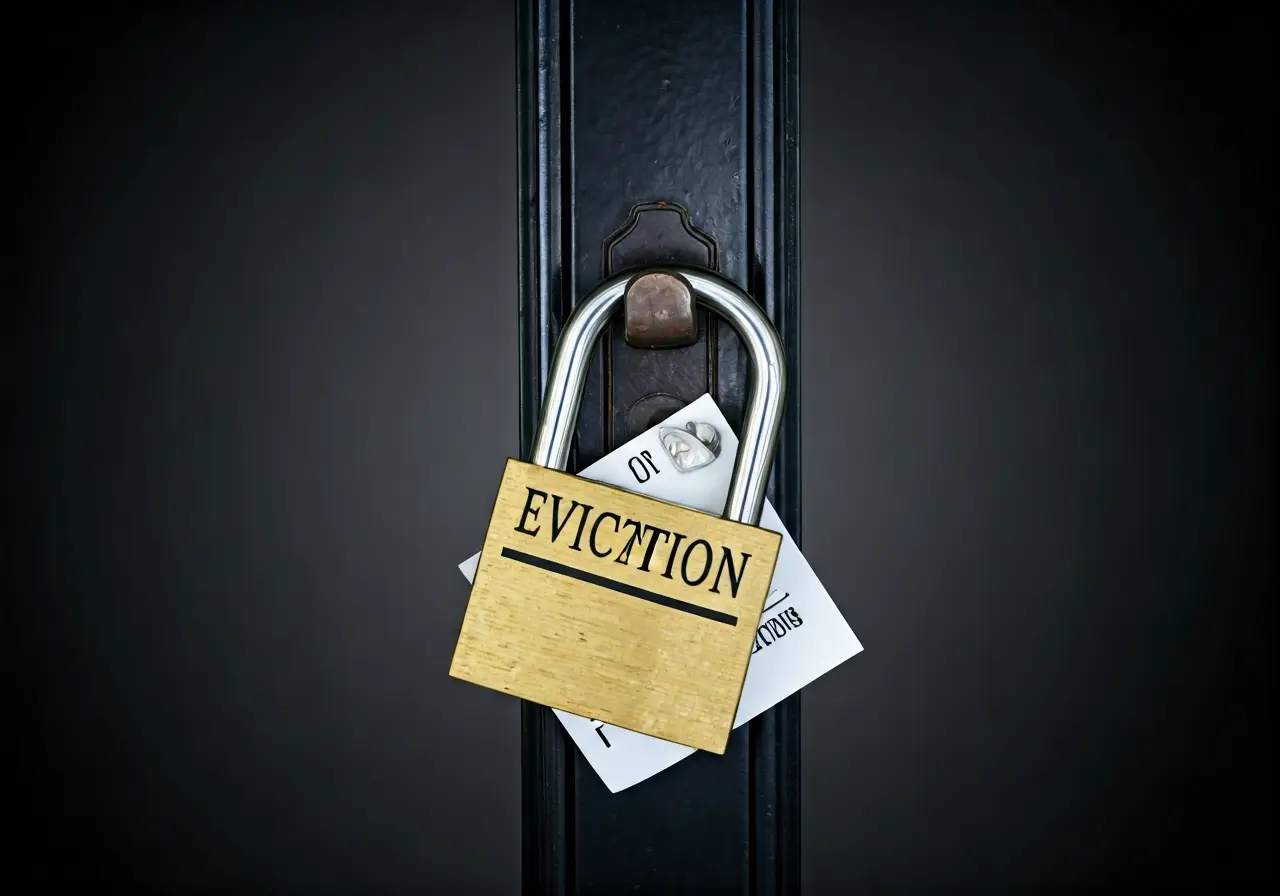Encountering a squatter on your property can be a stressful and challenging situation. However, with the right approach and understanding of the legal processes involved, you can address it smoothly and effectively. This guide provides you with clear steps and practical tips to help you navigate the process of removing a squatter with ease.
Understanding Squatting and Property Rights
Before taking any action, it’s crucial to understand what squatting entails and the relevant property rights involved. Squatting typically refers to someone occupying a property without the legal right to do so. Understanding your rights as a property owner is a pivotal first step.
Squatters can initially seem harmless, especially if they’re maintaining the property, but it’s important to recognize that they have no legal claim to occupy it. According to legal definitions, squatting is different from trespassing. While trespassers usually don’t stay on the property for a long time, squatters might even try to claim adverse possession—a concept where they might gain legal ownership if they’ve occupied the property long enough following specific legal criteria. Therefore, a clear grasp of local property and squatting laws is essential. This foundational knowledge empowers you, the property owner, to take informed and decisive actions when resolving such situations.
One effective strategy to avoid squatting is to regularly inspect your property, especially if it’s unoccupied. Regular visits help deter potential squatters as they can see that the property is being monitored. Additionally, it’s advisable to keep your property in good condition and secure, which reduces the attractiveness of the space to squatters.
Identifying a Squatter Situation
Identifying whether someone is a squatter or a tenant is important. A tenant might have rights under lease agreements, whereas a squatter does not have the legal right to occupy your property. Clarify this distinction to proceed with the right legal actions.
A critical step in handling a squatter situation is establishing their status. At times, a tenant might have been paying rent but stopped for some reason. If there’s a lease agreement, the person is a tenant and must be dealt with through eviction proceedings for defaulting tenants. In contrast, if someone is living on the property without permission and without any legal agreement, they are considered squatters. It’s essential to differentiate between these statuses because they determine the course of legal actions you’ll need to take.
In some cases, squatters may attempt to present fraudulent documentation or false claims of tenancy to avoid eviction. Keeping proper records of any rental agreements and communications with legitimate tenants helps in these situations. Moreover, conducting periodic checks of the unoccupied property can help quickly identify an unauthorized occupation.
Legal Steps to Take When Dealing with Squatters
The legal aspect is crucial when dealing with squatters. Familiarize yourself with local laws and the necessary legal processes, such as serving an eviction notice. Consult with a legal professional to ensure you’re taking appropriate steps.
Evicting a squatter involves following a series of legal procedures that vary by region. In most cases, property owners need to file an unlawful detainer lawsuit if they face resistance from the occupant. This step gives a formal notice to the squatters, legally demanding their removal. It’s essential to document each step you take in this process, such as delivering the eviction notice—having a record supports your case if it escalates to a court trial. Remember, attempting to forcibly remove squatters without going through the court can lead to legal troubles for the property owner as well.
Engage with law enforcement at an early stage if you suspect squatting is happening. They can provide guidance on the next steps and may intervene if criminal behavior, such as property damage, occurs. The police can sometimes help confirm whether the squatters have any legal rights to remain on the property. This peacekeeping involvement can simplify your interactions with squatters and help ensure a lawful path forward.
Practicing Patience and Persistence
Removing a squatter isn’t an overnight process. It requires patience and persistence. Continue to follow up on any legal actions and maintain communication with the authorities to expedite the process.
Emotions can run high during these situations, but maintaining a calm and consistent approach is vital for effective resolution. It often takes time for legal processes to unfold, and there could be delays in obtaining a court date or sheriffs executing a possession order. However, this is not an excuse for inaction. Keep checking for updates in legal proceedings and respond promptly to communication from your legal team. This methodical persistence ensures that you remain one step ahead and enable a smoother transition back to rightful property control.
Seeking Professional Assistance
In complex squatter situations, seeking professional help can provide clarity and expedite the resolution. Consider hiring a property lawyer or a professional mediation service to assist you in navigating the process smoothly.
Hiring a legal expert who specializes in property disputes can be invaluable. They can provide detailed insights into any obscure legal intricacies specific to your jurisdiction, which can make all the difference in speedily resolving a squatters issue. Your lawyer will also help you understand potential outcomes and ensure that all your actions are legally sound, thus minimizing risks.
An Alternative
While the legal eviction process is often necessary, it can be time-consuming and costly. Fortunately, alternative strategies might resolve the situation more quickly and with less hassle. By negotiating directly with the squatter, you can sometimes avoid the courtroom altogether. A cash buyer helps with squatters by offering a convenient and faster alternative to a traditional sale, as they are equipped to handle properties with complex situations like squatters and purchase them in their current “as-is” condition, avoiding the homeowner’s lengthy and costly eviction process. Cash buyers often provide “cash for keys” incentives to encourage squatters to leave peacefully, thus simplifying the property transition and protecting the homeowner from potential legal and repair costs.
How a cash buyer helps
- Handles the Complex Situation:
Cash buyers specialize in properties with difficult situations and have the expertise and resources to navigate the legal and logistical challenges presented by squatters. - Purchases “As-Is”:
They are willing to buy the property in its current condition, which means you don’t have to go through the costly process of removing the squatters and repairing the property first. - Skips the Eviction Process:
By purchasing the property, the cash buyer takes on the responsibility of resolving the squatter situation, saving the homeowner from the time-consuming and expensive legal process of eviction. - Offers “Cash for Keys”:
A cash buyer might offer the squatters a financial incentive, known as ”cash for keys,” to leave the property voluntarily and peacefully, fostering a smoother transition for all parties. - Faster Sale:
Quick cash buyers can often assess the property’s value and make a cash offer within days, providing a quick solution for homeowners dealing with this difficult problem.
Work with MarketPro
We’ll give you a fast cash offer for your current home just as it is now; no repairs, no upgrades, no inspection, no commissions or fees. You can even choose your exact closing date. Our team will walk you through your quote, including a review of what your home would likely bring on the open market.
If you’re in Washington, D.C., Maryland, Virginia, Florida or Georgia, we’d love to show you how easy and stress-free the sales process can be. Contact us today for a same-day, no-pressure quote.




